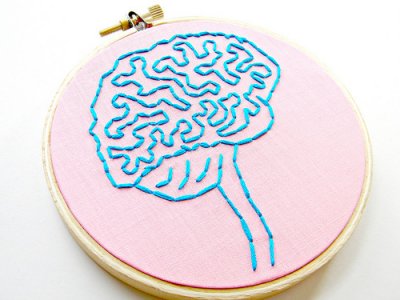What is Mental Health, Anyway? The Myths You Need to Know

By: Hey Paul Studios
Mental health is a buzzword lately. But what is mental health, exactly?
And what misunderstandings about mental health do you need to watch out for?
[Worried about your mental health and need to talk to someone, soon? Book one of our online therapists now and be talking as soon as tomorrow.]
What is mental health?
Mental equals mind, true.
But to say that mental health is just about your thinking is missing the mark.
Mental health includes your thoughts as well as your emotions, behaviours, and ways of relating to others.
The ingredients of good mental health
The World Health Organisation (WHO) puts their definition of mental health as, “a state of well-being in which every individual realises his or her own potential, can cope with the normal stresses of life, can work productively and fruitfully, and is able to make a contribution to her or his community.”
So to break that down, if we are mentally healthy, we can:
- cope with daily life
- be resilient in the face of challenges
- take positive actions
- take care of ourselves
- Feel good about ourselves
- work towards our potential
- and have successful relationships.
Then what is mental illness?
The opposite of mental health is mental illness. And looking at the above, it becomes easy to see what mental illness is.
Mental illness means we can’t cope with day to day life. Our thoughts and moods leave us distressed, making poor decisions, not feeling good about ourselves, sabotaging relationships, and unable to function.
Again, our mental health includes behaviours.
So if you aren’t sure whether you have good mental health, look to the ways you are behaving. Things like addictions, self-harm, and poor self-care can all signify that you have mental health issues and need support.
Myths about mental health
There are far too many myths about mental health out there. Here are a few.
1.There is an exact formula for good mental health.
Not at all. What makes you feel inspired to take care of yourself, feel good in the world, and live out your potential might be entirely different than what works for someone else. Some people find mental health through sport, others through spirituality, for example.
Find what works uniquely for you, no matter what others might think.
2. It’s obvious when someone has bad mental health. They are ‘mental’.
First of all, calling someone ‘mental’ is entirely unhelpful. It creates a stigma around something that we all go through. You, too, will one day struggle to cope in the face of life change.
Secondly, mental health issues can be far from obvious. Sometimes the person who seems the most together is suffering the most, and the person who always goes on about their troubles actually feels quite stable beneath it all.
So don’t assume you know someone’s mental health. Or think that because someone seems to be doing well they don’t need you to ask them how they are. Ask anyway, then listen carefully.
3. Positive thinking is the most important.
Conscious negative thoughts do tend to lead to negative moods and negative actions (this idea is at the core of CBT therapy). And it can be helpful to learn more balanced ways of thinking.
But if we experienced a difficult upbringing or childhood trauma, then trying to change things with a bit of positive thinking will do very little.
In fact trying to ‘positivize’ away deep inner pain can make our mental health worse, instead of better. Repressing memories and emotions can cause depression, dissociation, and anxiety.
So mental health is much, much more than positive thinking! To achieve mental health we might, for example, need to actually let ourselves cry and think all the negative things we’ve been denying.
4. If you have a personality disorder diagnosis you will never have good mental health.
A personality disorder means you see yourself, the world, and others in a way that is different to most people. This can cause conflict, which can leave you depressed and lonely.
But it does not mean you have to have poor mental health. If you learn to understand the ways you are
different and how you can behave around others in more helpful ways? You can start to feel better about yourself and your life.
Remember, mental health is about coping and reaching your potential, not being like everyone else.
5. Mental health has nothing to do with physical health.
For a long time the idea that mental and physical health were connected was seen as an ‘alternative’ idea.
But now research shows that the two are indeed interlinked. Exercise can make us feel better, and mental illness can leave us more prone to ongoing colds and flu or to serious illness.
In the World Health Organisation’s fact file on mental health, they state that “mental disorders increase the risk of getting ill from other diseases such as HIV, cardiovascular disease, diabetes, and vice-versa.”
What can you do if your mental health isn’t good?
The most important thing you can do is not judge yourself. It’s not a competition. And the more we put ourselves down for struggling mentally, then worse we feel. Remind yourself that everyone, at some point in life, has mental health challenges.
We are living in a time with more information available than ever before. Self-help is a great start. There are great books, articles, and forums you can access.
But don’t make the mistake of thinking that self-help equals support. The truth is that when we are struggling with mental health issues it can be hard to ‘see the wood for the trees’. We lose sight of what we need or how to make good decisions. And our friends and family, who want the best for us, can be too invested to tell us what we need to hear.
A counsellor or therapist is trained to help you move forward and creates a safe space for you to do so. And nowadays counselling and therapy is more affordable than ever. If you are worried about finances, read our article on ‘Low Cost Counselling‘ for inspiration on finding the help you need.
Ready to change your mental health for the better? We connect you with some of London’s best counselling psychologists. Not in London or the UK? Use our online booking platform to find an online therapist today.







Thank you for spreading the right information. For those, seeking the therapy or needs psychotherapy or counselling, please consult some therapist